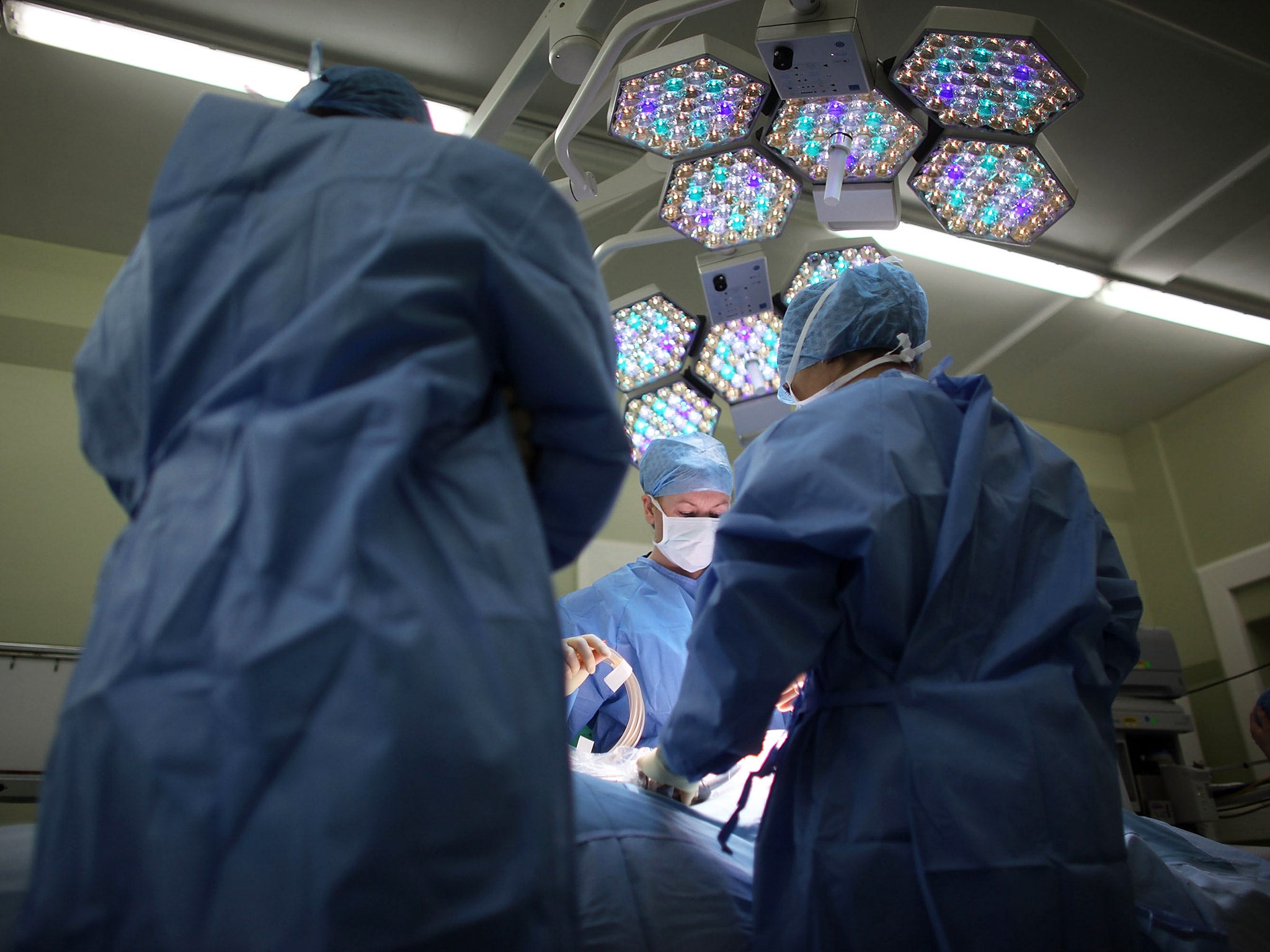NHS treatments such as vasectomies and hip operations to be rationed because of cost-cutting
An investigation into 19 Clinical Commissioning Groups (CCGs) found that several are planning to restrict access to routine care

Your support helps us to tell the story
From reproductive rights to climate change to Big Tech, The Independent is on the ground when the story is developing. Whether it's investigating the financials of Elon Musk's pro-Trump PAC or producing our latest documentary, 'The A Word', which shines a light on the American women fighting for reproductive rights, we know how important it is to parse out the facts from the messaging.
At such a critical moment in US history, we need reporters on the ground. Your donation allows us to keep sending journalists to speak to both sides of the story.
The Independent is trusted by Americans across the entire political spectrum. And unlike many other quality news outlets, we choose not to lock Americans out of our reporting and analysis with paywalls. We believe quality journalism should be available to everyone, paid for by those who can afford it.
Your support makes all the difference.More patients could be denied NHS treatments as a result of cost-cutting by health authorities, with hearing aids, vasectomies and knee and hip operations among services set to be rationed in some areas.
An investigation into 19 Clinical Commissioning Groups (CCGs), which pay for NHS health services at a local level, carried out by the GP magazine Pulse, found that several are planning to restrict access to routine care.
In some areas controversial requirements for smokers to give up and for obese people to lose weight before being offered certain surgical procedures, will be used to reduce costs.
NHS Great Yarmouth and Waveney CCG introduced weight loss and smoking cessation criteria for all smokers and people with a body mass index (BMI) over 35 requiring hip and knee replacements, earlier this year.
Patients in Luton will also have to undergo a weight loss programme or quit smoking before certain elective surgical procedures, Pulse reported.
A plan to implement a similar scheme in Devon was dropped last year shortly after it was announced, following criticism from surgeons.
Other rationing measures include an NHS North Staffordshire CCG plan to deny access to hearing aids to patients with mild and moderate hearing loss – a move labelled “cruel” by the charity Action on Hearing Loss.
Treatments for varicose veins, breast reduction surgery and hair removal, will also be restricted in some areas.
NHS Dorset CCG will not commission “interventional treatment” for varicose veins for adults whose BMI does not stay below 30 for three months, Pulse reported. NHS Basildon and Brentwood, meanwhile, has capped the number of vasectomy referrals that can be made by each GP practice in the area.
The NHS in England has set itself a target of cutting costs by £22bn by 2020.
The national authority, NHS England has in the past criticised some of the rationing decisions made by CCGs.
A plan floated by Northern, Eastern and Western Devon CCG last year to limit hearing aid allocations to one per patient was dropped after an intervention by NHS England chief executive Simon Stevens.
However, according to the Health Service Journal, NHS England is backing the hearing aid rationing policy be deployed by North Staffordshire CCG. The plans, which will affect 500 new patients each year, are hoped to save the CCG £200,000 annually.
NHS Great Yarmouth and Waveney CCG said the new policy on smokers and obese patients requiring hip and knee replacements would affect 60 to 80 patients a year, and could save £270,000 annually. Patients would get “the support they need” to help them meet the new criteria for surgery, the CCG said.
Rebecca Driver, director of engagement at the CCG, said officials appreciated some patients would be concerned by the move.
“But by taking responsibility for their own health, they will not only get the best possible result from their surgery, but will also reduce the risk of developing further health problems in future years,” she said.
Dr James Kingsland, president of the National Association of Primary Care, said that rationing “necessary care in a service that is free at the point of use” was “unacceptable”.
NHS England spokesperson: "These days it's groups of local GPs that decide on most NHS care, and it can be reasonable to take account of the impact that smoking and avoidable obesity have on individual patients' risks of surgery and the likely clinical benefits from an operation."
Join our commenting forum
Join thought-provoking conversations, follow other Independent readers and see their replies
Comments